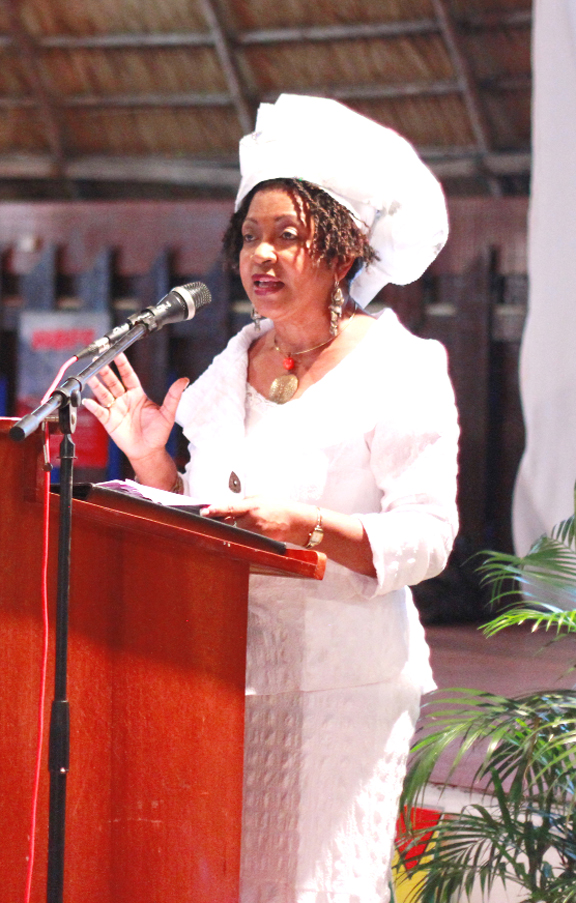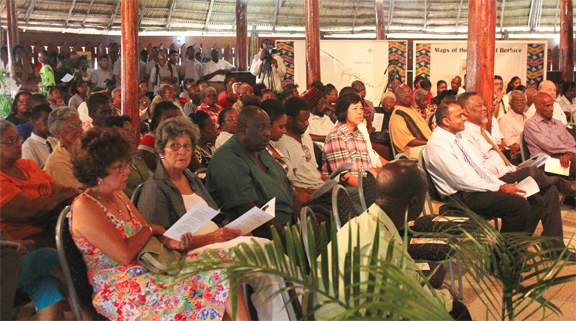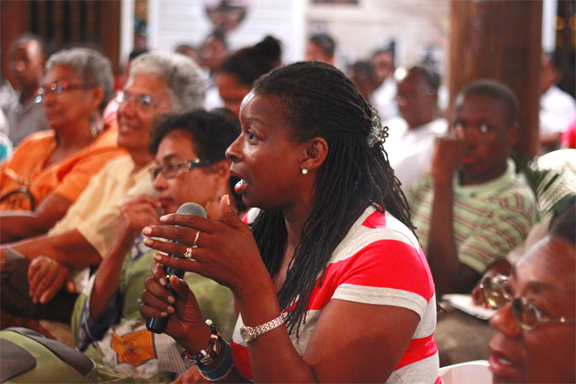While singing the praises of the often forgotten female emancipationists, Professor Verene Shepherd last week called for statues to be erected in honour of the women who fought alongside men to end the oppressive system of slavery.
“Where are the tangible sites of memory to our female emancipationists? Enslaved women, like men, appropriated and acted on the idea that as forced colonial subjects they had a stake in the enlightenment project of human progress,” she said. She noted that while statues have been erected to honour the men for their struggles during and post slavery, similar initiatives have not been undertaken for the women. She urged the Ministries of Culture and Education within the region to correct this wrong, while emphasizing that it was part of “symbolic decolonization”.
The failure to acknowledge the women in visual form, Shepherd opined, could be attributed to the fact that they are unknown. This, she said, is because persons have not bothered to find out about the women. During her presentation she acknowledged the significant contributions made by Nanny in Jamaica, Cecile Fatima in Haiti, Nanny Grigg in Barbados as well as Amba and Susanna in Guyana. Shepherd, was at the time, delivering a lecture titled “United in Anger, United in War: Gender and Anti-slavery in Caribbean History”. This was the final lecture in a three-part series sponsored by the Culture Ministry to commemorate the 250th Anniversary of the 1763 Berbice Revolt.

When it was pointed out that the only female to date that has been honoured locally in the form of a statue is Queen Victoria, Shepherd opined it isn’t necessary that this be pulled down but stressed that others should be erected alongside this statue. “What we must never do is leave Queen Victoria alone in the park. We need to find the women who fought against what Victoria stood for,” she told the gathering at the Umana Yana. Shepherd said that there was no purely humanitarian reason for the emancipation of slavery and emphasized that it was the enslaved, including the women, who fought for it.
She noted that while women may not have been at the vanguard of the wars of resistance that took place across the region they were involved in other critical ways. Additionally, she said that many were flogged and punished harshly after some of these rebellions were squashed. She also stated that it was this same anti-slavery movement that was the precursor to the anti-colonialism movement and the feminist movement.
Meanwhile, Shepherd urged that History be made a compulsory subject in all secondary schools. “I call on Caricom to make history a mandatory subject in all secondary schools in the region. For the lack of awareness of these women icons that could empower our girls and women and gave them strength in the face of the impact of socio-economic tribulations is partly, not wholly, attributable to the lack of history education in our schools.” According to her, the lack of awareness of women’s contributions to the development of the Caribbean feeds the hegemony of men over women within the region. History texts, she advocated, have to be revised to include the women.
Addressing the issue of reparation for slavery, Shepherd said that for some nations: “apology and regret without reparation equal hypocrisy and immorality”. In the first lecture of the series, Professor Sir Hilary Beckles said that Caricom should take the lead in approaching the British Government for assistance to address several problems affecting the region as part of reparation for slavery in the region.
Shepherd lectures on the subject of Social History at the Mona Campus of the University of the West Indies. Her research interests include Jamaican Economic History during slavery (especially the history of the non-sugar activities); African Enslavement and its Legacies in the Caribbean, Asian Migration and Diasporas, and Caribbean Women’s history. Professor Shepherd has published widely on the above topics and is the second woman after Guyanese Elsa Goveia to have been promoted to Professor at the UWI, Mona Campus.

- A question for Professor Shepherd





